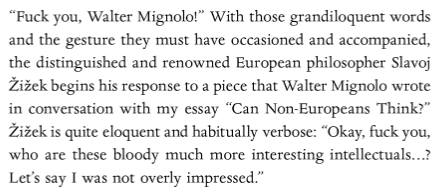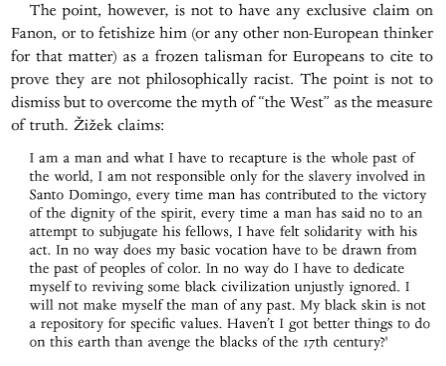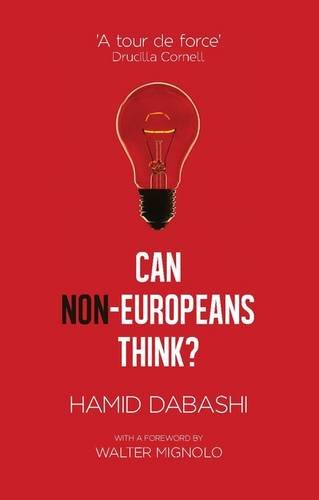





A Vienna conference in hermeneutic pholosophy in 2011 got me thinking about the gap between so-called continental and analytical philosophy, because it builds up to a quite extensive and general problem, which I more-and-more frequently stumble into and ponder upon: the problem of context.
I was having a conversation with someone on the relation between philosophy and science, and the question “is philosophy a science?” One might say, that a scientist intercepts his/her object through a given, inherited structure of concepts, stemming from a given tradition. The scientist does Kuhnian “normal science” in practice, and the main goals are to cope with this practicality, which prohibits him/her from questioning the grounds of this tradition, and more explicitly what he/she is actually doing. Following this line of thought, I might qoute from Popper’s “The logic of scientific discovery” (Preface to the first edition, 1934), that “even he” says (although in a different context!), that philosophy itself, apart from the sciences, does not have an organized structure:
“A scientist engaged in a piece of research, say in physics, can attack his problem straight away. He can go at once to the heart of the matter: to the heart, that is, of an organized structure. For a structure of scientific doctrines is already in existence; and with it, a generally accepted problem-situation. This is why he may leave it to others to fit his contribution into the framework of scientific knowledge.
The philosopher finds himself in a different position. He does not face an organized structure, but rather something resembling a heap of ruins (though perhaps with treasure buried underneath). he cannot appeal to the fact that there is a generally accepted problem-situation: for that there is no such thing is perhaps the one fact which is generally accepted.”
These lines parallel to what I think of philosophy and its differentiation from science. But quoting this “from out of nowehere” in a conversation isn’t that simple. I quoted Popper, and stressed that word “even” with a particular intention, to paddle toward the problem of context, that I pointed out in the beginning.
There are these great philosophers, who by essence wrote on all sorts of different things, in different times, and even by constantly changing their minds and intentions sometimes (thoughtful of them, leaving enough work for philologists, I guess). They are therefore cited in separate disciplines in very different, even contradicting ways. And by historians of science and philosophy, categorized in different “approaches”, “ideas”, and “historical processes” etc. We can agree in a way, that apart from each scholar’s actual position, they wrote down all sorts of very interesting and useful thoughts, lieing out there, free to barter with and qoute in e.g. a seminar paper, or a new publication, wherever you wish.
But we know, that this is not that true. Of course, there are nice thoughts “in themselves”, but behind them and in their application lies the source with the actual and particular intention of addressing them (the intentions of the writer and publisher), and they also lie in a particular context of the text itself. This latter means their textual position, the cause of the particular language (meaning sof words, their relations to each other, the underlying approach) being used and where, why it was edited, published (historical and geographical context), and came to life in the academic vascular system.
So the question to me is, if I qoute for example Karl Popper, what (else) do I qoute with him?
I guess with experience, you get to know “who is who” in their connections, and how and where to qoute different people, conscious of their context.
Now, the problem I usually have, is that in what sense can I determine, “who is who?” (which presupposes a categorizational process), since there are different communities and different perspectives to decide from. For someone already devoted to/following a tradition (e.g. hermeneutical phenomenology), it might look quite simple to choose from and interpret freely in the thereby given boundaries by knowing “who is who” in this community, and by already bearing a language and perspective to put into use in the activity of knowing. But a particular way of knowing articulates only certain aspects.
For example, Kant was a leading character of scientism founded in the “Enlightenment Project” (a typical postmodern point of view), or he was the founder of the critical movement of later approaches (marxism, neo-kantians)? Was he following a Newtonian (absolute), or a Leibnizian (relational) perspective of space – or differently, was he trying to critically combine these together? All these options exist, and lead to different positions of Kant, in different contexual interpretations. Who is then, Kant? Or: how many sides does Kant have – without loosing the actual context of Kant himself?
And there is the value-question, the morality of theory. Should I quote him/her? After all, he/she might not have been a very nice person. How far can we be simply sapiocentric?There are nice and well-known examples for this. Feyerabend (who is one of my favourites) drew from Lenin, praised Mao. Heidegger sympathized with nazi politics, which became personally problematic for him in his relationship with Hannah Arendt. There is the problem of politics in science (by politics I mean manifesting the practical side and underlying intentions of thoughts), e.g. the “left-wing” in France, like Bourdieu and Foucault, their academic opposition and critical stance (Foucault was formerly a communist, and was segregated in a time to Paris VIII, Vincennes). And there is of course, one of the most controversially interpreted figures, just as Kant, Karl Marx. This is especially important for me in Hungary, where dictatorship (in partly changing forms) reigned for many decades. For example, György Lukács, the most well-known Hungarian marxist philosopher was in several ways in the dictatorship itself. And there were a lot of other philosophers, who had to produce the maxist-leninist slogans in order to fit in their scholar community – Ágnes Heller and others wrote on this topic. Some were trying to unconsciously connect the Western marxist/socialist (critical theory) literature (either American, or French) with the one we have (inherited), which is actually the marxist-leninist tradition. The language, the referred sources are a bit similar, but these are totally different traditions, with different intentions and context. So, there is a moral or political context also.
And there is the canonization and simplification of terms. In textbook chapters, the terms “postpositivism”, “antipositivism” etc. lead to a list of people criticizing “positivism” – under one term. But going through a list even of Popper, Lakatos, Feyerabend and Kuhn under “postpositivism” doesn’t fit at all, for they were speaking about very different things. So it is quite misleading. In fact, both terms could stand for “the critique of positivism” generally, which sits in positivists themselves, criticizing a form of positivism inside the tradition (Quine, Popper, Lakatos, Laudan), but postmodernists, and hermenutic positions also, the latter coming from the broader scope of continental philosophy – mixing up everything. But there is in this sense no such thing as “positivism”, since they usually refer to all sorts of things under the term, like aperspectival objectivity, scientific realism, positive role of science, formal reduction, hypothetico-deductive reasoning, rationality, logical reconstruction, universality of theory, quantitative methods, naturalism etc.
This neglects the fact that it is also a contested, ever-changing tradition(s), manifested in different forms, some not even ever bearing/using the term “positivism”, but was later considered as a (former or latter) modified form of “it”. I’ve met a lot of accounts, which don’t bother contextualizing the concrete authors, missing the actual, historically bound purposes and differences of the listed discrete elements attributed to the “grand term”, and instead breed such didactic (?) terms, and develop evolution processes distinct from the subjects/sources themselves, and give a all-too programmatic account of what actually happened. Just to refer back to “continental” and “analytic” philosophy, this distinction emerged only because of a historical event or process: many “analytic” philosophers were socialists, like the Vienna Circle in Red Vienna, who had to flee to the UK and the US from the nazis in the middle of the 1930s.
So, grand theories dismiss the actual context of writings. In fact, an analytical, a hermeneutic phenomenological, a post-structural, or a feminist critique of positivism might use the same examples, but the critique itself and its intention is bounded in a very different tradition and language, and makes “the critique of positivism” incoherent if arguments are taken from diverse sources unconsciously (e.g. the hermeneutic critique is much older than the post-structuralist).
So, to sum all this up. How far, and in what extent can we step away from the context in our interpretation of the author? What constitutes a source’s context? How can they be grasped coherently in a multi-disciplinary way? I have to take in a whole bunch of considerations, in order to build the coherence of my own standings, e.g. if I want to write something on Kant, or Heidegger, or against positivism.